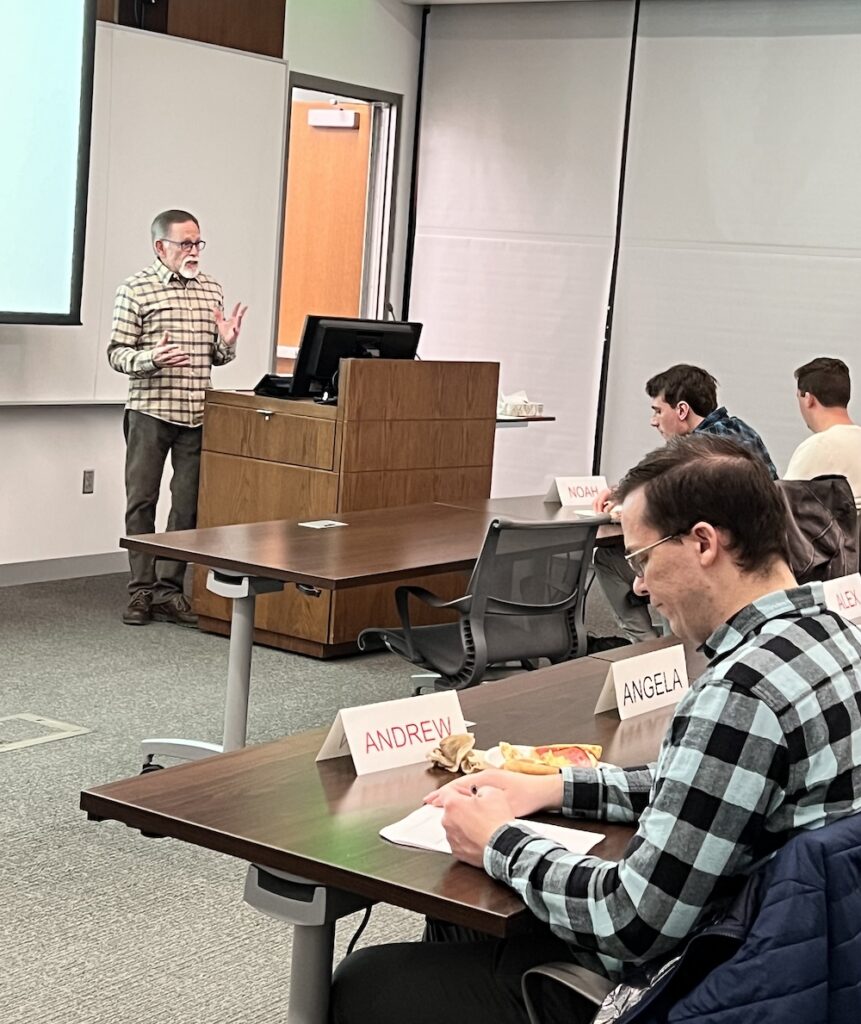 Professor Randy Dryer has taught the pre-trial practice class every fall semester at the S.J. Quinney College of Law for 12 years. An alum of the law school himself, Dryer says the most rewarding part of the class is sharing his many years of experience litigating civil cases and giving students a realistic look at the world of litigation.
Professor Randy Dryer has taught the pre-trial practice class every fall semester at the S.J. Quinney College of Law for 12 years. An alum of the law school himself, Dryer says the most rewarding part of the class is sharing his many years of experience litigating civil cases and giving students a realistic look at the world of litigation.
“The course is very practice-oriented and exposes a student to the entire pre-trial phase of a civil lawsuit, beginning with an initial client interview and concluding with a pre-trial settlement just before trial. There is a drafting assignment every week,” Dryer says. “Students can compare their work product with the work product filed by the actual attorneys in the case. No independent research is required, as all case authority and factual materials are provided.”
During the class, students learn to:
- Draft a complaint and answer
- Make a preliminary motion to dismiss
- Conduct a Rule 26(f) “meet and confer” attorney conference
- Write discovery requests
- Outline a deposition examination
- Argue a motion for summary judgment
- Create a settlement agreement
The pre-trial practice class is unique because each stage and activity is done in the context of an actual case litigated in Utah federal court, Dryer says.
“The amount of feedback on student-written work products is extensive and individualized. In addition to attending a lecture class where students learn the governing rules of civil procedure and attorney best practices, students have their written work product reviewed and critiqued in a small section taught by experienced Utah practitioners,” he explains.
3L Drake Walker says pre-trial practice is one of the most useful classes at Utah Law and that it is effectively a capstone course for students interested in litigation.
“Through the clever use of experienced large- and small-section professors, this course ties together all the seemingly disjointed litigation topics that 1L and 2L students are briefly exposed to in other classes. By tracing the actual pre-trial life of a case—from the filing of a complaint to the drafting of a post-summary-judgment settlement agreement—students finally gain a comprehensive understanding of the most common aspects of the litigation process,” Walker says. “This, in turn, instills confidence and develops the skills needed to tackle any litigation task that may arise in a student’s future career. I wholeheartedly recommend this course to any student interested in litigation.”
Dryer says that though the class is a lot of work, the work is spread evenly over the semester and there is no final exam.
“Because there is extensive formative feedback and students have an opportunity to revise and resubmit assignments, the mandatory mean does not apply,” Dryer says. “The class is a great way to get a feel for the practice of law and make some connections with prominent litigators in the Utah Bar.”
The most challenging part of teaching pre-trial practice, Dryer notes, is helping students to fully understand the reasoning behind the litigation process.
“Litigation, although it is governed by rules and procedures, is more an art than a science and requires critical thinking and judgment,” he says.
3L Alex McFarlin recently completed pre-trial practice and says it is a “must-take.”
“The class is designed to walk a student step-by-step from the initial client interview through the final pretrial conference,” he says. “And it’s taught by a group of practitioners who’ve been through the process countless times. It helped me develop as a writer, orator, and negotiator. I highly recommend it!”
